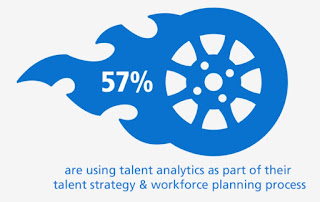 |
| Source: Randstad Sourceright website. Global figures. |
The Randstad Sourceright 2016 Talent Trends Report was developed with the feedback and outlooks of nearly 400 HR, talent and business leaders spanning more than 60 countries. Randstad Sourceright uncovered that the single most challenging talent management issue of today is the lack of critical talent and the resulting impact on business, as well as a company’s leadership and succession pipeline. Other repercussions of talent scarcity include increased spending on talent acquisition, growing frustration among hiring managers and disappointed leaders who want to know why business plans aren’t moving forward.
“The Asia Pacific market faces a very uncertain 2016 with many challenges and opportunities ahead. For talent leaders, they also face a highly fluid world of work as talent scarcity grows across the region. To make sure their organisations remain agile during turbulent times, they need insight, the right strategies in place and a clear action plan,” said Doug Edmonds, Managing Director, Randstad Sourceright Asia Pacific. “Our 2016 Talent Trends Report takes an in-depth look at how leaders are responding to these developments and how best to prepare for these changes.”
 |
| Source: Randstad Sourceright website. Global figures. |
Singapore especially remains one of Asia’s most competitive talent markets. The survey discovered some revealing insights shared by Singapore-based HR leaders:
Four in 10 (41%) said they need leaders the most (enterprising, multi-skilled professionals who can lead organisational change, development, and innovation) in the next five years
Nearly seven in 10 (68%) said talent scarcity negatively impacted their business in 2015
Eight in 10 (78%) plan to improve the skills of their hiring managers to provide a better candidate experience
The survey results presented in the report also provide a holistic view of how organisations around the world deploy talent, the challenges they face and the solutions that help them to keep moving forward. Key findings include:
85% of respondents believe an integrated talent management approach encompassing permanent and contingent talent will enhance the resources available for business growth.
The use of talent and workforce analytics continues to increase, with 73% in Singapore using this data to create more efficient workforce planning.
When asked about the biggest trends impacting the future of work in the next five to 10 years, the top responses were the need to create greater flexible working options to attract mobile talent, the ability to analyse internal and external employee data to source and retain talent and the challenge of keeping pace with evolving technology.
The following areas that needs more investment to support their business goals, say Singapore HR leaders:
- More market intelligence (61%)
- Investment in business and HR analytics (59%)
- Investment in specialised recruiting and sourcing operations for specific skill-sets (54%)
The survey results presented in the report also provide a holistic view of how organisations around the world deploy talent, the challenges they face and the solutions that help them to keep moving forward. Key findings include:
85% of respondents believe an integrated talent management approach encompassing permanent and contingent talent will enhance the resources available for business growth.
 |
| Source: Randstad Sourceright website. Global figures. |
The use of talent and workforce analytics continues to increase, with 73% in Singapore using this data to create more efficient workforce planning.
When asked about the biggest trends impacting the future of work in the next five to 10 years, the top responses were the need to create greater flexible working options to attract mobile talent, the ability to analyse internal and external employee data to source and retain talent and the challenge of keeping pace with evolving technology.
Interested?
Download a complimentary copy of Randstad Sourceright 2016 Talent Trends Report. Infographics are available on the same page.
Download a complimentary copy of Randstad Sourceright 2016 Talent Trends Report. Infographics are available on the same page.